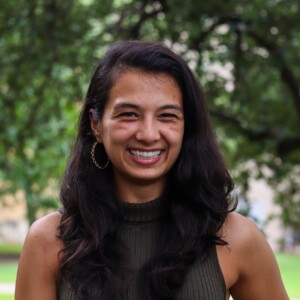Catherine Wilsnack is a doctoral student at The University of Texas at Austin Steve Hicks School of Social Work. Catherine earned her B.S. in Psychology from the University of North Carolina at Chapel Hill and a Master’s in Social Work from the University of Pennsylvania’s School of Social Policy and Practice. During her master’s degree, Catherine completed an aging certificate program and clinically specialized in outpatient and inpatient interdisciplinary healthcare settings caring for terminally ill patients and their families. Catherine’s areas of research interest include: oncology, cancer genomics, rare disease, end of life and palliative care, caregiver support, aging, grief, loss, and family bereavement.
Upon graduating with her MSW, Catherine accepted a Cancer Research Training Award Fellowship at the National Institutes of Health in the National Cancer Institute (NCI). She worked in the Clinical Genetics Branch (CGB) that is housed within the Division of Cancer Epidemiology and Genetics. During her fellowship, Catherine worked on two different studies that focused on rare hereditary cancer syndromes, one called Li-Fraumeni Syndrome (LFS) and the other is an Inherited Bone Marrow Failure Syndrome called Dyskeratosis Congenita (DC). Catherine worked primarily as a research coordinator and investigator on the Adolescent and Young Adult (AYA) LFS mixed methods study. The AYA LFS study is a longitudinal, nested mixed methods study with the aim to deepen the understanding of the unique and rapidly evolving psychosocial needs of AYAs with LFS to inform evidence-based intervention development and testing. Furthermore, she worked with the Branch Chief of CGB to design a concurrent mixed methods study for DC. She designed the study to assess the informational, pragmatic, and psychosocial needs of patients and families affected by DC. Catherine wrote an IRB-approved protocol and secured intramural funding to collaborate with the DC patient advocacy group, Team Telomere, to implement the first psychosocial study that has examined only this population. By the end of her fellowship with the NCI, Catherine produced two first-authored manuscripts and presented at multiple national and international level, peer reviewed conferences.
In addition to her research accomplishments prior to PhD matriculation, Catherine served as a mental health clinician for a patient advocacy group associated with LFS called LivingLFS. She had the privilege of being asked by the organization’s leadership to facilitate LFS related mental health workshops for their family camp attendees in October 2019. Moreover, she co-authored a mental health fact sheet that individuals and families with LFS may use in their local communities when seeking mental health services with providers unfamiliar with LFS. She has continued to earn her clinical hours toward licensure by working as a mental health clinician for a private practice group in Maryland where she specializes in treating individuals and families facing terminal illness, cancer, grief, loss, depression, anxiety, and PTSD. During her time at UT Austin, Catherine will be working with her primary mentor, Dr. Barbara Jones, on oncology related projects in conjunction with the Institute for Collaborative Health Research and Practice, MD Anderson Cancer Center, and the Livestrong Cancer Institute.
Professional Interests
Oncology, cancer genomics, rare disease, end of life and palliative care, caregiver support, aging, grief, loss, and family bereavement


